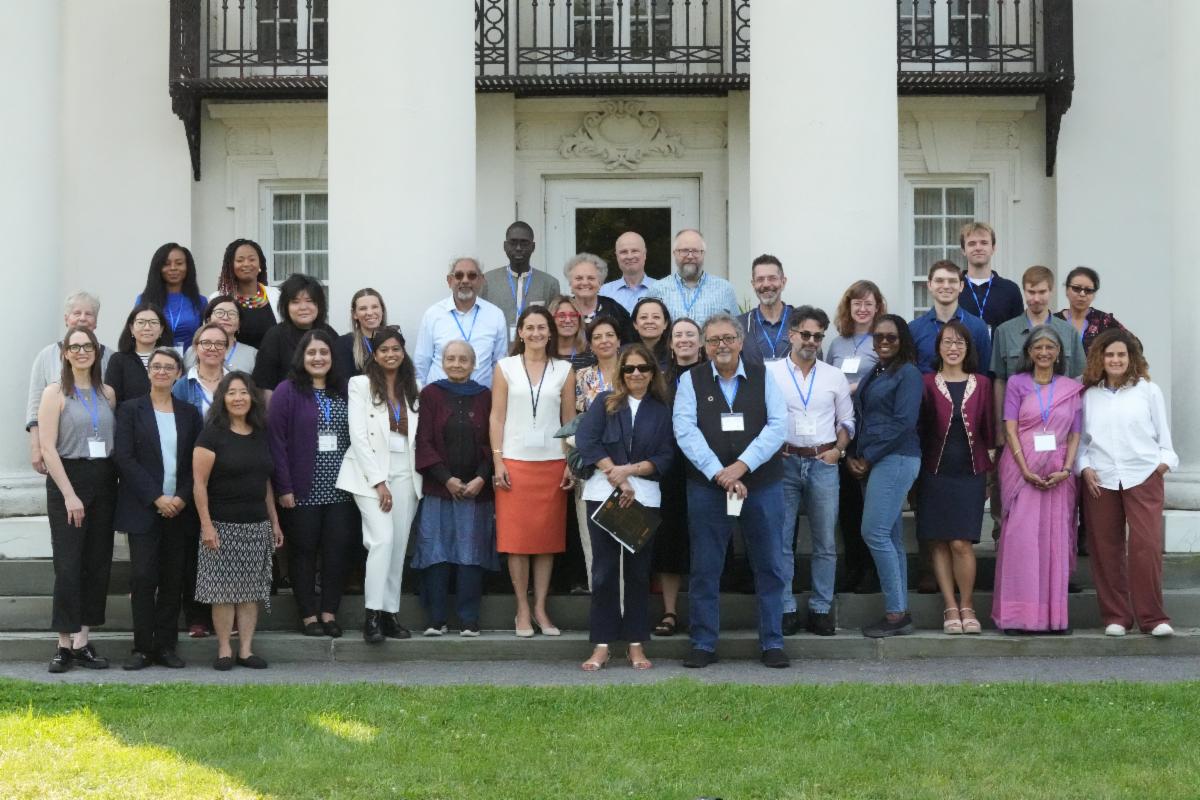|
First Session October 15th
@ 12:00 PM EST
These information sessions will provide an overview of the Levy academic programs, student life, admission requirements, enrollment steps, financial aid procedures, and immigration requirements for international students. Applicants who attend a virtual information session will have their application fees waived.
Contact us for more information at 845-758-7776 or [email protected]
| | |
|
Backed by over 30 years of proven policy impact, the Levy Institute Graduate Programs in Economic Theory and Policy provide innovative approaches to topics such as time use, poverty, gender, student debt, and employment that other programs neglect, encouraging students to evaluate policies, examine behavior, and dig deeper into the social phenomena that underlie economic outcomes.
Along with a challenging academic environment, the Levy Institute programs also offer a supporting and caring community where students benefit from sharing their research with faculty and their peers to promote academic exchanges and intellectual collaboration.
To find out more, visit bard.edu/levygrad or follow the program’s Facebook page.
Interested students should contact the Institute at [email protected] for more information. Scholarships are available.
| |
|
WORKING PAPER NO. 1055 | The Relation Between Budget Deficits and Growth: Complicated but Clear
In this paper, Senior Scholar L. Randall Wray and Eric Lin look at the relationship between government budget deficits and the growth rate of GDP. While orthodox economic theory offers several reasons to believe that growing deficits might be associated with slower growth, and would ultimately be unsustainable, Keynesians assert that deficits could stimulate growth—at least in the short run—implying the relation between deficits and growth could be positive. MMT, adopting Godley’s sectoral balance approach, Lerner’s functional finance approach, and Minsky’s theory of financial instability, takes a more nuanced approach.
| |
|
|
CO-SPONSORED BY THE BARD COLLEGE PSYCHOLOGY PROGRAM
Join us November 19 at 5 pm EST at the Blithewood Conference Room or on Zoom. Contact Belle Cheves at 845-758-7714 or e-mail [email protected] for information. For updates on future events in the Speaker Series, see tinyurl.com/LevyGenderSeries
Approximately one in nine U.S. adults age 65 and older (nearly seven million) has Alzheimer’s disease. Health and long-term care costs for people living with Alzheimer’s are projected to reach $360 billion in 2024 and nearly $1 trillion in 2050. Racial, ethnic, and sex/gender disparities in Alzheimer’s and related dementias (ADRD) are notable: almost two-thirds of Americans with Alzheimer’s are women. Black and Latinx adults are almost twice as likely than non-Latinx White adults to develop ADRD.
Despite these stark disparities, most prior research on risk and resilience factors associated with ADRD has been conducted in non-Latinx white adults. This presentation will discuss empirical findings on cardiometabolic and psychosocial factors that heighten risk for and confer resilience against ADRD, emphasizing racial, ethnic, and sex/gender disparities in observed associations. This presentation will draw on findings from two U.S.-based longitudinal cohorts of middle-aged and older adults, the Health and Retirement Study and the Offspring Study of Racial and Ethnic Disparities in AD.
| |
On September 11–13, the Levy Institute, with generous support from The William and Flora Hewlett Foundation, convened A Path to Inclusive Development: Unpacking Gender Inequalities in Economic Theory and Policies. This was the fifth workshop in a series that began in 2016 exploring the integration of gender into economic analysis. Gathering 40 speakers from 17 countries, with an emphasis on participation by young scholars and scholars from the global south, the workshop aimed to provide a forum for investigating and debating the interactions between multiple dimensions of gender inequality and economic processes, outcomes, and policies—guided by engagement with alternative theoretical frameworks explored by feminist economics and with an eye to identifying and addressing the limitations of prevailing empirical measures, showcasing the Levy Institute’s innovative methodologies on gender, poverty, and well-being. Featuring a keynote by Jayati Ghosh and a policy roundtable with experts from the ILO, UNDP, World Bank, and the Center for Global Development, the workshop was organized in memory of Nilüfer Çağatay. Footage and presentations from the conference will soon be made available, so be sure to check our YouTube and social media feeds in the coming weeks for updates. |  | |
Participants at the 2024 Levy Institute Gender Workshop. | | | | |